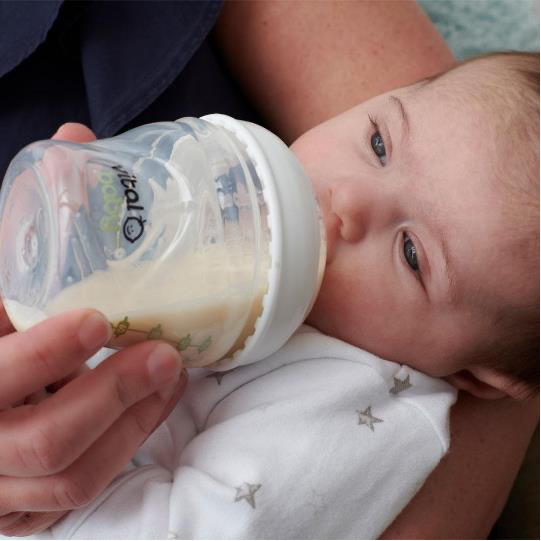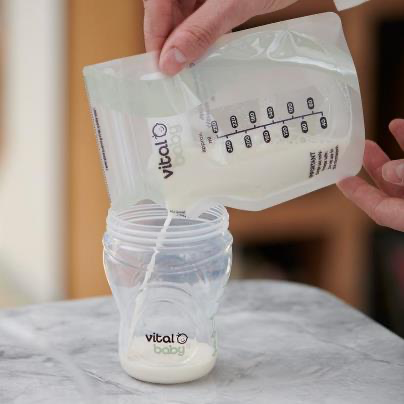With Breastfeeding Awareness Week (1-7 August 2024) coming up, mothers face a multifaceted journey. They encounter common challenges such as latching difficulties, lack of support, and workplace obstacles. This week aims to shift the stigma surrounding breastfeeding and formula feeding, highlight the critical role of support networks, and explore solutions to these challenges.
Why Mothers Stop Breastfeeding
Breastfeeding is often portrayed as a natural and straightforward process, but many mothers face significant hurdles that lead to early cessation. Among the most common reasons are:
- Latching Difficulties: A proper latch is crucial for effective breastfeeding, yet many infants struggle to latch correctly. This can result in pain for the mother and insufficient milk transfer for the baby. Latching issues often stem from anatomical challenges, lack of immediate postnatal support, or both.
- Lack of Support: Successful breastfeeding requires a supportive environment. Without encouragement from family, friends, and healthcare providers, mothers may feel isolated and overwhelmed. Community support, breastfeeding groups, and access to lactation consultants are vital for sustaining breastfeeding practices.
- Returning to Work: The transition back to the workforce is a significant barrier. Without adequate facilities for pumping and storing milk, and without flexible schedules, many mothers find it difficult to maintain their breastfeeding routine.
- Concerns about Milk Supply: Many mothers worry about their milk supply being insufficient. This concern can be fuelled by societal pressures, misinformation, or a lack of visible milk during pumping sessions. Understanding normal feeding patterns and growth indicators can alleviate these concerns.
Shifting the Stigma
Breastfeeding is a personal journey that can vary greatly from one mother to another. Some may breastfeed for a short time, while others may continue for years. It’s important to recognise and normalise this variability. There is a societal stigma attached to not breastfeeding, often exacerbated by the phrase “breast is best.” While breastfeeding has many benefits, it is essential to acknowledge that fed is best. Formula feeding can be a healthy alternative, providing necessary nutrients and allowing mothers who cannot or choose not to breastfeed to ensure their babies are well-nourished. High-quality formula products are designed to closely mimic breast milk, supporting infant growth and development. Supporting mothers means respecting their choices and providing the resources they need to nurture their babies.
Importance of Support & Men as Breastfeeding Champions
Support networks play a crucial role in helping mothers achieve their breastfeeding goals. Lactation consultants and healthcare providers offer invaluable assistance in overcoming breastfeeding challenges. Additionally, fathers and partners can be powerful advocates, providing emotional and practical support that enhances the breastfeeding experience. By being present, encouraging, and helping with tasks that ease the mother’s burden, partners can significantly contribute to a successful breastfeeding journey.
Workplace Challenges
Returning to work presents unique challenges for breastfeeding mothers. Employers can support breastfeeding by providing lactation rooms, scheduled pumping breaks, and flexible working hours. These accommodations help mothers continue breastfeeding without compromising their work responsibilities, fostering a more inclusive and supportive workplace environment.
 Relevant Statistics and Benefits of Breastfeeding
Relevant Statistics and Benefits of Breastfeeding
According to the World Health Organisation (WHO):
- Globally, rates of exclusive breastfeeding in the first six months of life have increased by 10 percentage points over the past decade, reaching 48% in 2023, nearing the World Health Assembly target of 50% by 2025.
- Significant progress is observed across various regions, with 22 countries in Africa, Asia, Europe, and Oceania documenting increases of more than ten percentage points in exclusive breastfeeding since 2017.
Breastfeeding offers numerous benefits, including optimal nutrition, immune support, and bonding opportunities between mother and baby. It also contributes to the mother’s health, reducing the risk of certain cancers and postpartum depression.
Progress and Challenges
While global rates of exclusive breastfeeding are improving, many mothers still face barriers, especially in the workplace. We call on policymakers to prioritise breastfeeding rights and support initiatives that enable mothers to breastfeed without barriers.
As Breastfeeding Awareness Week approaches, it’s important to reflect on the diverse experiences of breastfeeding mothers. By understanding the challenges they face, shifting societal perceptions, and providing robust support networks, we can create a more supportive and empathetic environment for all mothers. Vital Baby is proud to contribute to this cause by offering support and innovative products designed to aid mothers throughout their breastfeeding journey. Let’s work together to normalise this journey, celebrate every mother’s choice, and ensure that all babies receive the nourishment they need.
- Can Moms Really Afford to Breastfeed? - October 15, 2025
- Lesser-Known Pregnancy Risks That Need To Be Discussed - September 22, 2025
- Dads – how can you make a difference in Mom and Baby’s breastfeeding journey - August 13, 2025



 Relevant Statistics and Benefits of Breastfeeding
Relevant Statistics and Benefits of Breastfeeding


